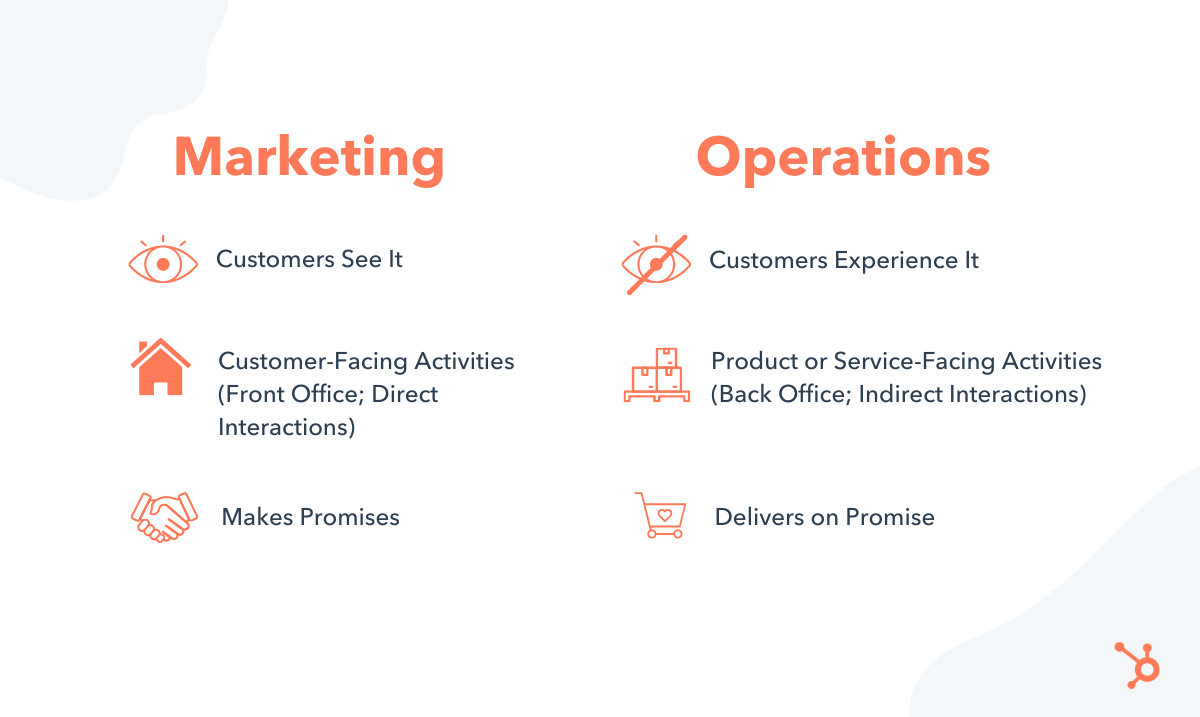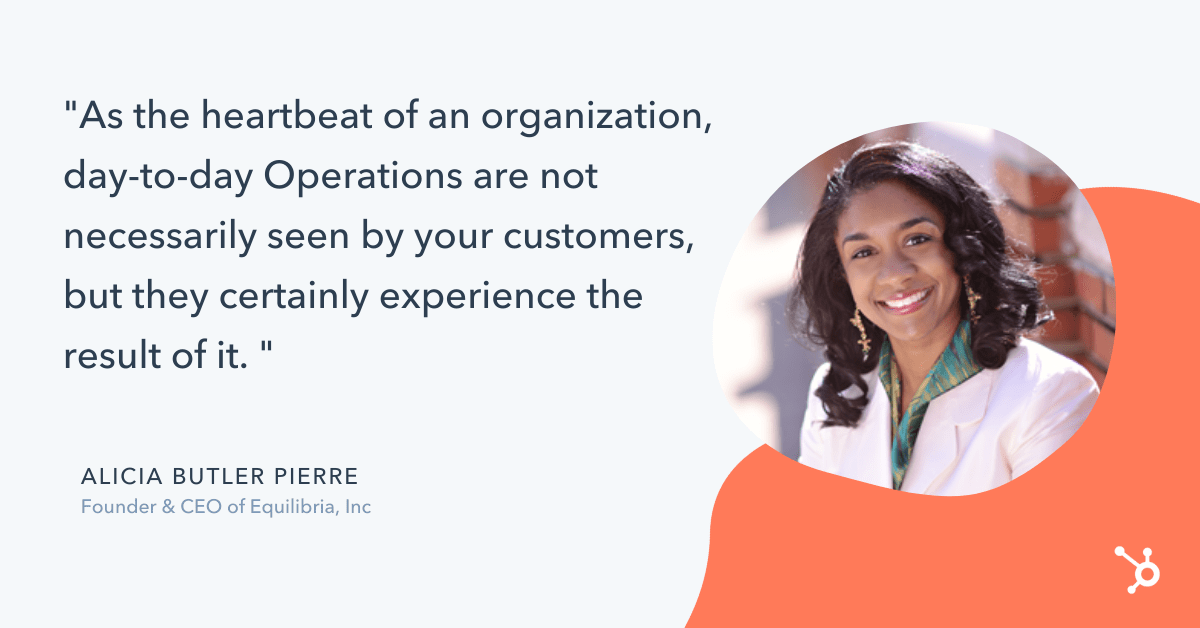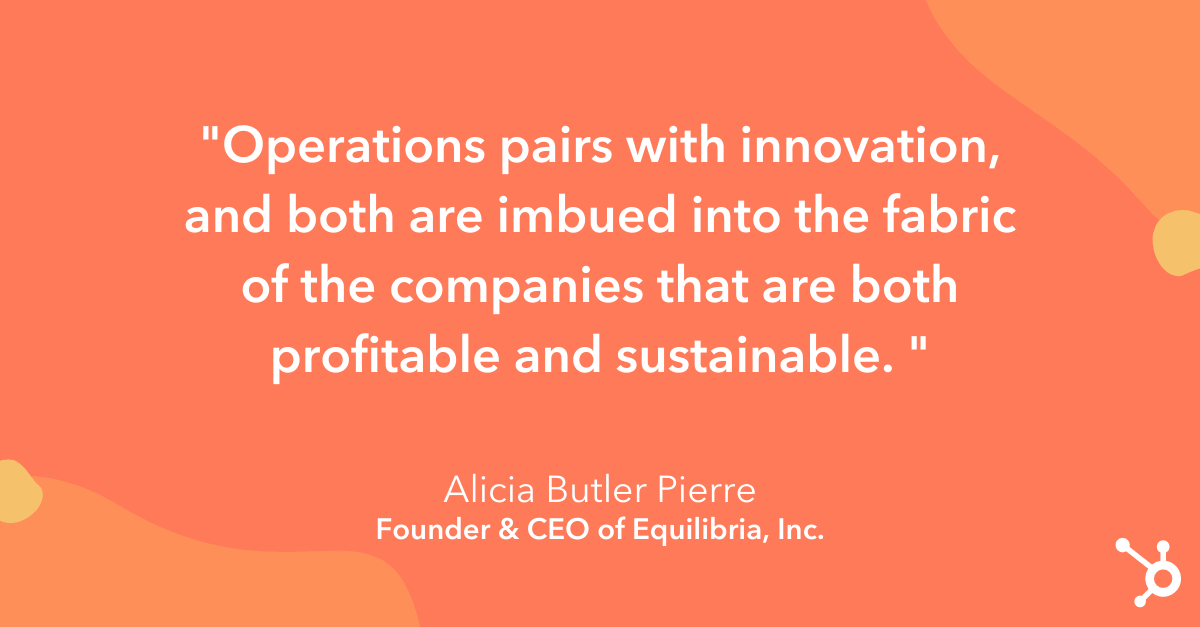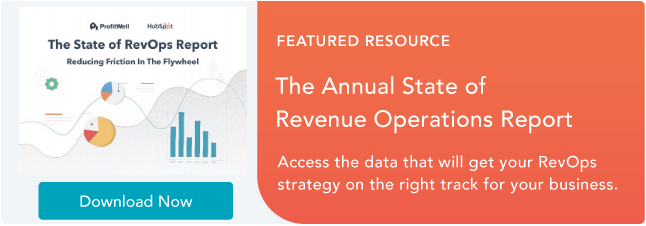"Your company is one viral moment away from a potential shutdown."
Yes, you read that correctly.
Imagine your company is fortunate enough to appear for a few minutes on a national TV show with millions of viewers. You can hardly contain your excitement. All eyes are on you. There's no turning back.
Your excitement soon turns to horror, however, when you realize your company isn't ready for this type of attention. Suddenly, a surge in traffic to your company's website causes it to crash. Team members quit from the stress of performing under pressure. Vendors threaten to sue you for late payments. Customers are angry because their orders are either incorrect or weren't provided on-time.
What took you years to build has effectively been destroyed overnight.
How can a successful organization good enough to land a coveted spot on a TV show succumb so quickly? The answer lies in Marketing vs. Operations.
The Paradigm Shift from Not Enough Customers to Too Many
When an organization officially opens its doors for business, marketing-related activities tend to be the primary focus. And it makes sense. After all, if no one knows about your product or service, you won't be in business long. Those activities can include sales strategies, P.R. and social media campaigns, and digital ads that catalyze advancement from the startup to the growth stage of business.
Eventually, if you have a great product or service that customers want, you'll see a return on investment for those marketing activities. At this point, as an organization advances from the growth stage to the emerging and scaling stages of business, the need for Operations becomes paramount.
The reason is that this transition is usually accompanied by periods of unmanageable fast-growth – customer demand is greater than what your company can supply. It's at this point that Operations-related activities like building the right teams, documenting and standardizing processes, and upgrading equipment and digital technologies becomes a higher priority.
If Operations is critical for scaling, why don't more companies focus on it?
The answer depends. When it comes to Operations, leaders of small businesses fall in one of more of three categories:
- Unaware: They either don't know about Operations or they've never been exposed to it.
- Uninterested: They believe that Operations isn't "sexy."
- Undiscovered: When they try to search for information to scale their organizations, they find the lion's share is reserved for large enterprises or manufacturing companies.
Let's unpack each of these.
1. Unaware
It's no surprise that many founders and leaders (business savvy and technical acumen aside), are largely unaware of Operations – what it is and how it applies to their businesses.
With customers and cash being the lifeline of any organization, special attention is given to customer-facing activities that ensure their satisfaction. This is an anchor against which we can define Operations.
As the diagram below illustrates, Marketing represents highly visible activities that customers tend to interact with directly. It involves making some sort of promise or guarantee to customers who purchase your product or service.
 Conversely, Operations is like the stealthy cousin of Marketing. It represents those activities that ensure customer orders are fulfilled on time, within budget, and within specification.
Conversely, Operations is like the stealthy cousin of Marketing. It represents those activities that ensure customer orders are fulfilled on time, within budget, and within specification.
As the heartbeat of an organization, day-to-day Operations are not necessarily seen by your customers, but they certainly experience the result of it.
Operations teams work behind the scenes to make sure a company can deliver on promises made.
A frustrated client in charge of Operations once told me, following a conversation with a Sales Manager, "They sell the dream while we deal with the nightmare!" It's a humorous take on the historical divide between Marketing and Operations teams.
That's why the Revenue Operations movement is so important — it breaks down these silos to encourage transparency while working toward the common goals of customer satisfaction and profitability.

2. Uninterested
Founders and CEOs are known for being big-picture, strategic visionaries. The thought of getting bogged down by details isn't necessarily their strength or interest. It's part of the reason why Operations can take a back seat to the more visible initiatives offered by the Marketing department.
But there's another culprit — small business event planners. Attend any small business seminar, webinar, or conference, and your chances of seeing an Operations topic included is slim to none. This omission creates a knowledge gap for leaders of small businesses and causes disinterest.
Through personal conversations and informal surveys, I've learned that a shockingly high percentage of these event planners think, "Operations is boring." I've also had many of them tell me that, "No one is interested." And perhaps most egregiously that, gasp, "Operations just isn't sexy." This type of thinking is dangerous and does a disservice to those seeking resources to scale to the next level.
Consider these stats from the U.S. Small Business Administration:
- 81% of businesses are sole-proprietorships
- 32% of small businesses fail within the first two years
- 51% of small businesses fail by year five
- 67% will fail by year 10
I've often argued that more businesses could graduate from sole-proprietorships if they had a better understanding of Operations. This means job creation which has a net positive effect on local communities and economies.
I also believe that more businesses can avoid failure if they had a solid Operations foundation. Yes, there are number of reasons why a business fails. But the reasons why they fail within the first five years versus years five through ten can vary significantly.
There are businesses that fail not from a lack of customers or poor cash flow, but because they have too many customers.
3. Undiscovered
When small business leaders proactively seek resources to scale, they often find that those resources are not written or formulated with them in mind. Plus, if they are lucky enough to find resources for small businesses, it's usually for those selling tangible goods.
Where can service-based businesses go for guidance on scaling without failing?
Learning about frameworks like Lean and Six Sigma can be intimidating and sometimes too "corporate" for a small business' needs. Thankfully, there's a growing faction within the Operations community who are actively working to make this information accessible to small businesses.
Learn More about Operations for small businesses in HubSpot's RevOps & Operations Community
Dr. Jeffrey K. Liker is one of them and he was careful to be more inclusive in the second edition of his critically acclaimed book, The Toyota Way.
Listen to my interview with Dr. Liker to learn more:
Ignore Operations at Your Own Risk: Cautionary Tales
Perhaps Kyle Jepson, Senior Inbound Sales Professor at HubSpot, said it best: "Operational failures are dramatic and visible. Operational success is invisible."
He's right. There's no shortage of examples of companies that, to their detriment, chose to ignore the due diligence and rigor required for sustainable Operations and continued to focus on the outward appearances that great Marketing afforded them.

One example is Ample Hills Creamery. Once known as "Brooklyn's most beloved" establishment, this local New York ice cream shop caught the attention of Disney's CEO. Soon, they landed a contract with Disney World only to lose it all a couple of years later as they hemorrhaged money despite enjoying a steady flow of customers.
One of their investors, Greg O'Connell noted, "It was a fairy tale. They were kind of living in a dream world because their marketing was so great." Their failure resulted in bankruptcy, but other more severe failures land leaders in jail.
Elizabeth Holmes (Theranos), Adam Neumann (WeWork), Billy McFarland (Fyre Festival), and Trevor Milton (Nikola) are highly visible examples of leaders who, despite receiving warnings, continued to mislead and defraud investors and customers only to find themselves either incarcerated or facing serious allegations.
Examine the back office of any wildly successful company and you will find ironclad Operations: solid teams backed by standardized, streamlined, and efficient processes and technologies. Operations pairs with innovation, and both are imbued into the fabric of the companies that are both profitable and sustainable.
Achieving this balance with Marketing is critical. This is what marketing expert Andrea D. Smith and I talked about on an episode of the Business Infrastructure podcast:
Business is complicated. It requires a constant balancing of not just Marketing and Operations, but all aspects of business. Don't silo or sacrifice one group for the other. Attracting a steady flow of customers is fruitless unless you can also guarantee customer satisfaction.
Join the quest to change the narrative about back-office activities. Operations is savvy, sophisticated, and smart. And that's very sexy!
![Download Now: 2021 State of RevOps [Free Report]](https://no-cache.hubspot.com/cta/default/53/78dd9e0f-e514-4c88-835a-a8bbff930a4c.png)








